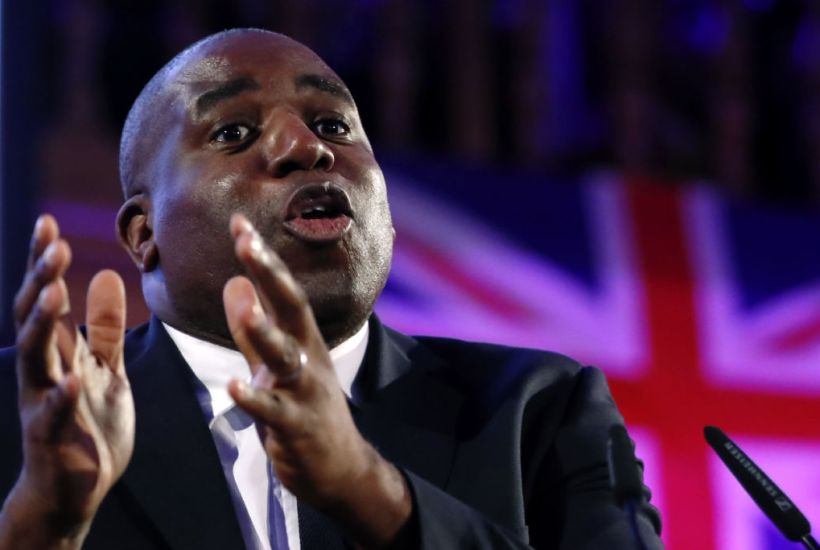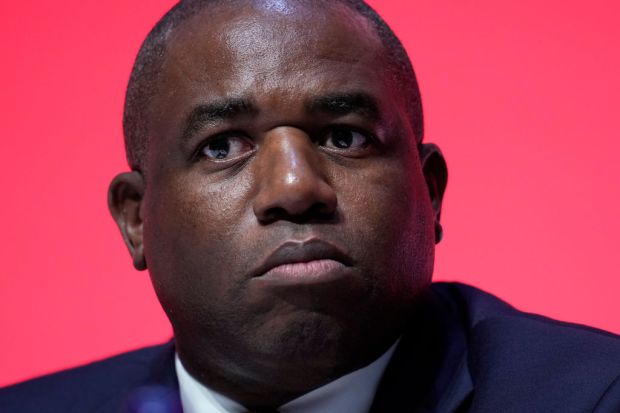David Lammy, the shadow justice secretary, has been doing his LBC radio phone-in show. If you believe LBC, he has ‘schooled’ a ‘caller’ who told him he is not English. If you listen to the exchanges in question, you’ll realise he did something much more impressive, and important than that.
The clip, which is all over social media, is here:
The short summary is that ‘Jean’ tells Lammy he cannot be English because of his Afro-Caribbean heritage. Lammy, who was born in London, politely examines her arguments and disagrees. There is no shouting and no fighting – that suggestion has been added by LBC to stir up anger and get some clicks.
Why is this important? It’s because Englishness is important, yet rarely discussed. Politicians are all too keen these days to shout about the Union flag and Britain, but England doesn’t get much of a mention. Even though the English are a very large, very important, and largely ignored group.
Last week was census week. Based on the last one, that census will in due course reveal that there are more than 30 million people in the UK who consider themselves English first and foremost. Of those, probably a third are likely to tick only the ‘English’ box and not also add the ‘British’ identifier. The English-not-British are the people who don’t get talked about in politics.
They are overwhelmingly white, might be older and much more likely than average to have voted for things like Brexit and Boris Johnson’s Conservatives in 2019. The ‘British not English’, meanwhile are less likely to be white, more likely to live in cities (especially London) and to be on the other side of the Brexit line.
I don’t think it’s controversial or original to suggest that the feeling that ‘England’ and ‘the English’ have been ignored in politics is important. That feeling surely contributes to some important political outcomes.
Likewise, the fact that some people from minority ethnic backgrounds, people who were born in and live in England do not want to describe themselves as English, is important and troubling. National identities rooted in ideas of ethnicity are not a force for good, to put it very mildly.
I grew up in Northumberland, a few miles from the English-Scottish border. I’ve spent my adult life in Edinburgh and London, and for several years wrote for the Scotsman. In that capacity, I paid more attention to the importance and development of Englishness as a distinct identity and political force than many people in England did. The Scots, for obvious reasons, are inclined to take an interest in their neighbour, whereas the English abhor self-analysis.
And their politicians are terrified of talking about Englishness, possibly for good reason. Can you imagine what would happen to an MP who went on TV with an English flag in the background? The ‘controversy’ that would follow? The editorials, the ‘debate’ about racism and xenophobia and dog-whistles? And so a flag that 30 million people regard as their own is largely kept out of political debate, the neglected symbol of an undiscussed identity that excludes far too many people who live in the country it covers.
England matters. Englishness matters. They are ideas that matter too much to be ignored, to be left neglected and undeveloped. I’m English (and British, and above all Northumbrian) but I don’t much enjoy subscribing to a national identity that many of my friends and compatriots feel is not for them. Nor do I think a politics that ignores the English is healthy or stable.
More politicians should do what David Lammy did today: talk calmly and sensibly about what it is to be English, and describe an Englishness that is open to all in England. They should also do more to understand why Englishness matters to so many people, what it means to them. That means less time spent squabbling about the Union flag, and more time on the flag of St George.
Leaving things unspoken and unexamined is a very English habit, but not always a healthy one. And an equally English habit is polite conversation. It’s long past time to talk about England.
Got something to add? Join the discussion and comment below.
Get 10 issues for just $10
Subscribe to The Spectator Australia today for the next 10 magazine issues, plus full online access, for just $10.




















Comments
Don't miss out
Join the conversation with other Spectator Australia readers. Subscribe to leave a comment.
SUBSCRIBEAlready a subscriber? Log in